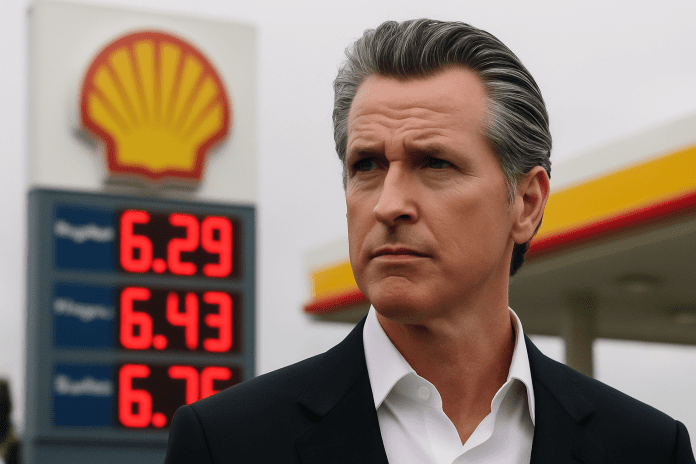🕒 Last updated on September 2, 2025
California has announced that it will delay its ability to punish oil companies for making what the state may consider “excessive profits.” This pause will last for five years, pushing the start of penalties to 2030.
A major shift in state policy
The decision comes only two years after state leaders celebrated new rules meant to hold large oil companies accountable for record-high fuel prices in 2022.
At that time, the state promised strong action to prevent oil companies from charging drivers too much at the pump. People struggling with soaring fuel bills saw the announcement as a victory. Now, however, the decision to hold off on enforcing these penalties has surprised many, including groups who had pushed for tougher rules.
The pause is being described as a way to keep California’s fuel market steady while the state continues its push toward cleaner energy. State officials say that demand for fuel is falling, but supplies are dropping even faster. They argue that delaying penalties can help keep prices from swinging wildly and ensure enough fuel remains available for drivers.
Trump administration cancels $679 million grants for 12 offshore wind projects across the U.S.
Concerns over consumer impact
Critics of the move say that without the risk of penalties, oil companies can continue to make as much profit as they want. They worry that this could open the door to another round of high gas prices, similar to what drivers faced just a few years ago.
Advocates for consumers believe that the lack of an active penalty system weakens the state’s ability to stop oil companies from pushing prices higher than necessary. They argue that, by giving companies more freedom, the state risks repeating the same problems that led to some of the nation’s highest fuel prices.
The debate comes at a sensitive time. Two refineries in California, which together make up nearly 20% of the state’s refining capacity, have announced plans to close in the near future. This adds another layer of concern, since fewer refineries could mean tighter supplies, and tighter supplies often lead to higher costs at the pump.
Supporters of the pause, however, insist that it is needed to protect consumers. They say the state cannot risk major supply shortages while it works toward its larger goal of moving drivers toward zero-emission vehicles. The balance, according to state officials, is making sure there is enough fuel for those who still rely on traditional cars while continuing to invest in clean energy options.
A battle between accountability and stability
The disagreement reflects two competing goals: keeping fuel prices stable in the short term and holding oil companies accountable for the long term. State leaders stress that the five-year pause is not permanent. Instead, they say it is a temporary step to give the market time to adjust while California manages the transition away from gasoline.
🌱 Fuel Shock in the Climate Capital: Gavin Newsom Confront Soaring Gas Prices and Policy Reversal
The oil industry has welcomed the delay, noting that it gives companies more certainty about how California’s fuel market will be handled. Industry groups had originally asked for a 20-year delay, but they accepted the five-year timeline as a compromise.
On the other side, consumer groups believe the change represents a step backward. They point out that, despite the law being passed two years ago, no oil company has actually faced penalties yet. This is because the state has still not set clear rules for what qualifies as “excessive profits.” Critics argue that without a strong system in place, the promise of accountability remains unfulfilled.
The decision also marks a clear shift from the strong language that state leaders used in 2022 and 2023, when they celebrated passing the original penalty rules. Back then, the message was about finally standing up to oil companies. Now, the language has shifted toward stabilizing markets and managing supplies.
Gavin Newsom weaponizes crypto with “Trump Corruption Coin” in redistricting war against Trump
For drivers, the impact of this change may not be immediate, but the debate highlights how complicated the fuel market has become. Balancing the need for affordable prices, reliable supply, and the move toward cleaner energy continues to be a challenge.

